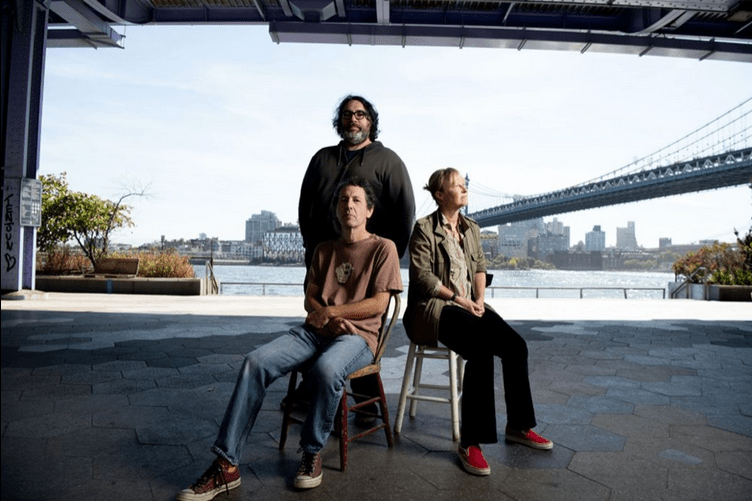To see a band that started in 1984 is to deal with a set of, shall we say, difficult questions. Am I engaged in a rather fruitless attempt to relive my youth? Has the band in question recorded a good album since I reached the legal drinking age? Will I be out of place because everyone else will be so much younger—or older—than I am?
Yo La Tengo, who returned to Carrboro this week for a two-night stint at Cat’s Cradle, is a band that somehow defies these anxieties that come with seeing bands that are entering their fourth decades of recording and performing. The band’s core members— Ira Kaplan and Georgia Hubley, among the leading lights of indie rock couples, and bassist James McNew, who has been with the band since 1993—played for more than two hours on Thursday night, showcasing not just their stamina, but, somehow, their youth.
For indie rock fans of a certain age and taste, Yo La Tengo was always the band whose work was part of the mix, but rarely the highlight. While bands like Galaxie 500, Guided by Voices, and Stereolab tended to shine, flicker, and fade, Yo La Tengo somehow stayed steady, outlasting even bands, like Sonic Youth, who seemed as if they would be with us forever.
Instead, that role has fallen to Yo La Tengo, whose one weakness is that they seem to come up with names for their album titles after a night of dorm room drinking (the latest, This Stupid World, was released earlier this year, following albums We Have Amnesia Sometimes (2020) and There’s A Riot Going On (2018), a good album title that Sly and the Family Stone claimed in the 1970s). But the haphazardness of their album titles is belied by a meticulous approach to songcraft, as was clear from Thursday’s show, which took place in two long sets.
The band is not much one for banter between songs, and isn’t afraid to let its inner shoegazer out, making the concert feel at times as if you’re driving down the interstate at 74 miles per hour, enough to feel a mild thrill, but not so fast that you worry about being pulled over. Crowd pleasing songs like “Stockholm Syndrome” (from the 1997 album I Can Feel The Heart Beating As One) and “Big Sky” (from their 1986 album Ride the Tiger) were interspersed with newer material, but someone unfamiliar with their catalog might see it as all coming out of the same period. The band’s consistency—and lack of a singular song—might have been a weakness when fuzzy guitars and downbeat drums were in style, but now it feels like a relief. While so many other artists have turned course, or stopped making music entirely, here’s a band that sounds just like they did two decades ago—and they’re still making great new music.
During the encore, Hubley, who spent most of the night behind the drum kit, came to the front to sing a cover of NRBQ’s “What can I Say,” a song that Kaplan dedicated to the dB’s, a band with connections to Chapel Hill. In many ways, this was a fitting end to the night—a tribute to a band that first broke up in 1988, got back together in 2005, and remains in that uneasy territory between starting over and reaching back to its past success. Yo La Tengo doesn’t have to do that. They’ve always been here—recording, touring, and staying the course.

